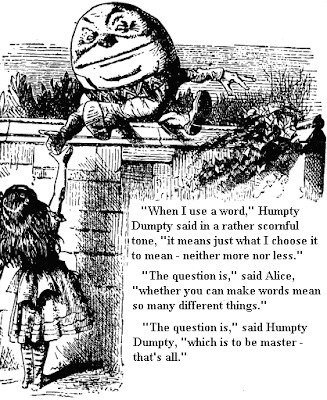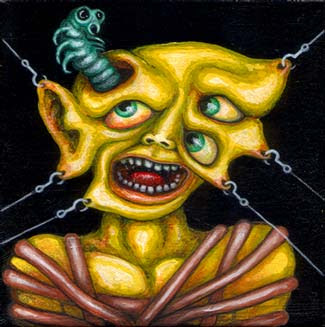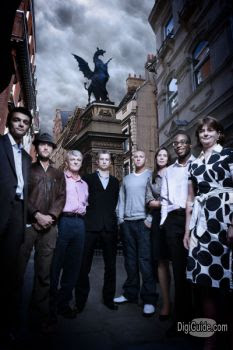Million Dollar Traders - The Final Showdown
To paraphrase that icon of British cinema Vinnie Jones - "It was emotional".
In the words of my mate Oscar "Emotions are out! Stops are in!"
To paraphrase overpaid media celebrity Russell Brand when challenged about how much media personalities get paid for doing stupid stuff on TV "People in the City get paid millions for playing guessing games!"
In the third and final episode of Million Dollar Traders things certainly come to a head. I was surprised at the amount of emotion on display, although I suspect that is because the BBC edited it that way to bring out the emotional. Personally I would have preferred more of an insight into how the stockmarket actually functions and the criteria that people use when making their decisions.
Million Dollar Traders Episode 3
Oki made an interesting point, and I paraphase again, when saying that a stock price looks like it's just a number but it is in fact the result of a whole load of emotions. A lot of fear and greed is crystallized into what looks like just a number on a screen.
As recent events have shown, people are capable of committing suicide as a result of trading stocks, so despite the desire to keep emotions out of trading it makes you wonder if it is really possible.
Fortunately none of the million dollar traders committed suicide, but there was certainly a lot of emotion on display.
As we saw last week, some of the traders are doing better than others. Caroline is the best so far and Emile, Mike and Oki are also doing well.
Amit, Cleo and Sam are not doing so well. Cleo still has trouble making decisions, Sam is troubled by the ethical aspect of trading and finds the need to be ruthless at odds with his morals and Amit just seems confused.
But their successs as traders or lack thereof is overshadowed by the emotional involvement between the members of the team. After 6 weeks inside a pressure cooker during very turbulent times on the stockmarket something has to blow!
"I canna hold it any longer captain!" springs to mind.
The team is down £10,000 and despite the BBC's insistence that this is a lot of money it is only 2% and a tiny drop in a vast ocean of incompetence in stockmarket terms. So basically they weren't doing so bad at online stock trading.
Lex decides that someone has to go and so has a chat with Amit and Cleo. He could have kept them till the bitter end (there were only two more weeks to go) but hey this is showbusiness ! Sorry, the stockmarket. So did he need to boot someone out because in the stockmarket that's what happens and underperformers are removed ? Or was it all for the benefit of the cameras ?
As it turns out, after talking to Amit and Cleo and Emile, Lex decides to keep Amit, to give Emile some more money to invest and to get rid of Cleo. The reasoning being that Cleo is not investing enough and is not making her own decisions (Emile has been helping her out - but you would have thought that that could have been construed as teamwork).
So when Cleo is given her marching orders, she gets rather emotional (although to her credit she does try to control her emotions) but Emile takes offence and decides if Cleo is going then he will go too (which is odd as he was doing rather well and it was after all just a TV show - it's not as if Cleo was being ill-treated, she was just back off home to the family business). It seems, however, that there was other stuff going on and that getting rid of Cleo seems to have been the straw that broke the camel's back.
As Emile had decided to leave, then Sam and Amit decided to join in and make it a gang of four. So the team was at a stroke reduced from 7 to 4 and the 3 that were left behind were the 3 top performers. Could it be that they had all been manipulated by Lex? He certainly ended up with a much more manageable and productive team, but I didn't get the impression that he had planned it that way all along, but who knows?
The result of all this was that the last episode had a lot of emotion and interpersonal interactions but not much in the way of insight into the way the stockmarket works or how people reach their investment decisions (or "guesses" as Russel Brand would have it).
When Amit, Cleo, Emile and Sam had left there were still two weeks to go but the last two weeks trading were dealt with in about two minutes.
During the walk-out, by and large Caroline, Mike and Oki got on with what they had come there for, although Mike did say he was not happy with all the emotional reaction - and Caroline said it was very very strange.
Lex was happy enough that the best 3 had stayed and concluded that the people who were losing money were keen to find any excuse to leave. But in fairness to Emile that was not true in his case, as his trades were generaly doing quite well.
Oki was upset people had walked out - but he was there to trade the stockmarket not for other reasons.
Caroline's budget was increased to 200k - with Mike and Oki on 145k each.
In conclusion the "team" actually made a loss of 2.4% over the 2 months, but that is pretty good going given the markets last year and given that professional hedge funds had made an even bigger loss of 5%.
The top trader turned out to be Oki who in fact made a 1% profit which is in itself quite remarkable. Lex said he was very talented but a bit unpredictable. Oki says its like playing chess against the rest of world - an interesting point of view except that chess is logical, I would say it is more like a game of poker in which the big guys cheat by sending coded messages to each other and swapping cards when nobody's looking.
Caroline made a profit of 0.5% which again is remarkable given the markets. Lex considered her the best trader as she was totally focussed and not as unpredictable as Oki.
And Mike lost just 1% - Lex says he was focussed and unemotional and a good trader.
Lex himself had lost 0.7% over the same two months, so not quite as much as Mike, which does tend to validate Lex's theory that anybody can do it.
Sam, Cleo and Emile have returned to their day jobs. Amit still has his shop and now trades from home (good luck Amit and if you've got any tips please leave them below!).
Simon has made new plans for his retirement (a wise decision!). Oki is continuing with his economics degree and Caroline has started a new business. Mike, if I heard right, is running a vet practice, which is a bit of a surprise I didn't realize he was a vet, but hopes to become a professional trader one day.
Lex Van Damm's aim in doing Million Dollar Traders was to see if beginners could trade as well as the professionals. Personally I think he has proved they can. Four out of the eight did just as well as the "professionals" and let's not forget it is the "professional bankers" that have created the economic mess that we are all now having to live with (thanks for nothing).
Personally I found the whole programme interesting, but would have liked to have seen a bit more about the stockmarket and a bit less about how people react to each other in tense group situations.
So how about a programme about life on a real life live trading floor as it actually happens, warts and all? It would be nice to know what really goes on when nobody is looking and how the professionals justify the vast amounts of money they are paid for being so incompetent.
Home : Million Dollar Traders
Episode 1 of -> Million Dollar Traders
Episode 2 of -> Million Dollar Traders


